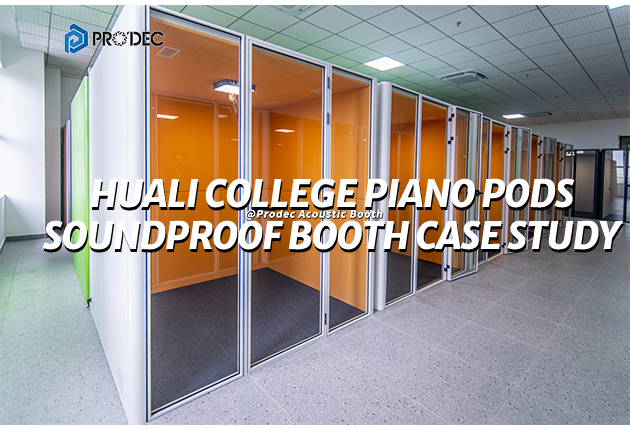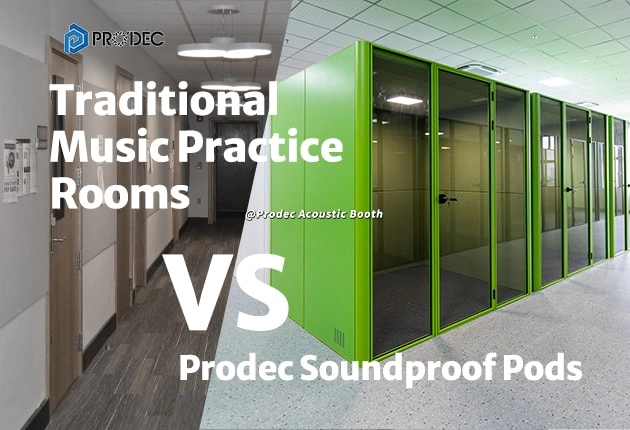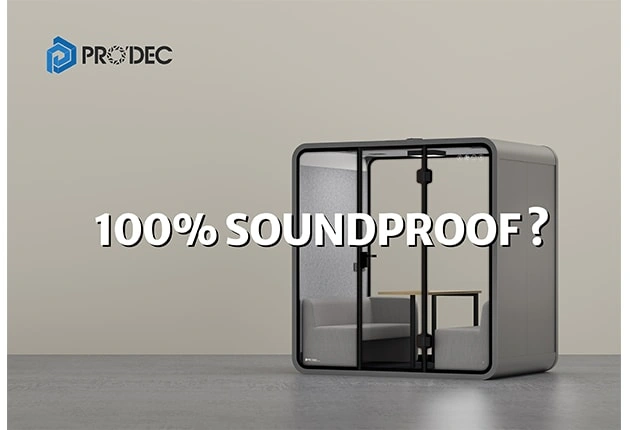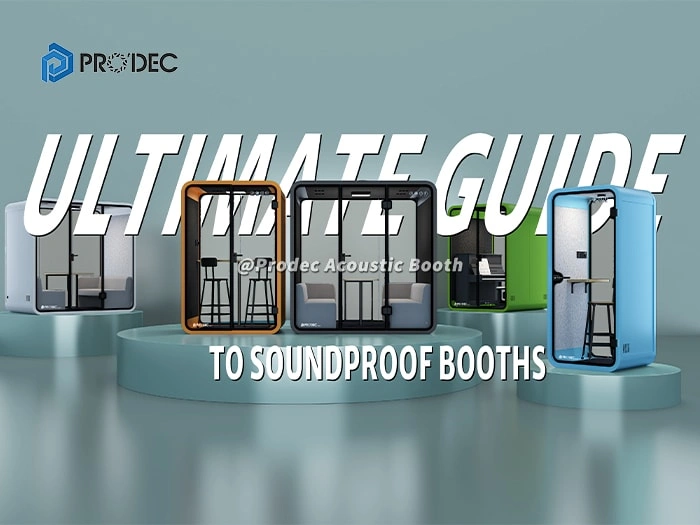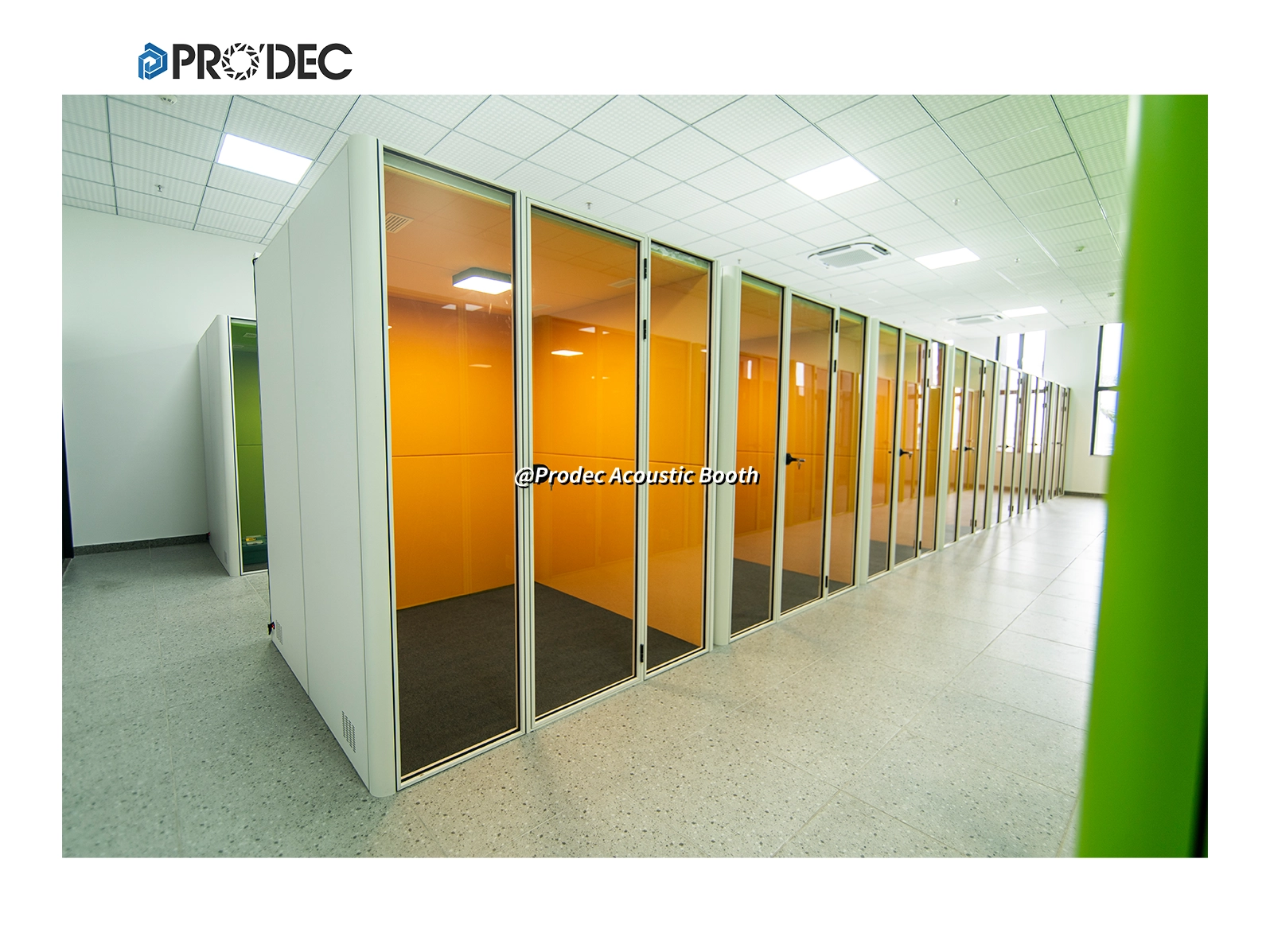
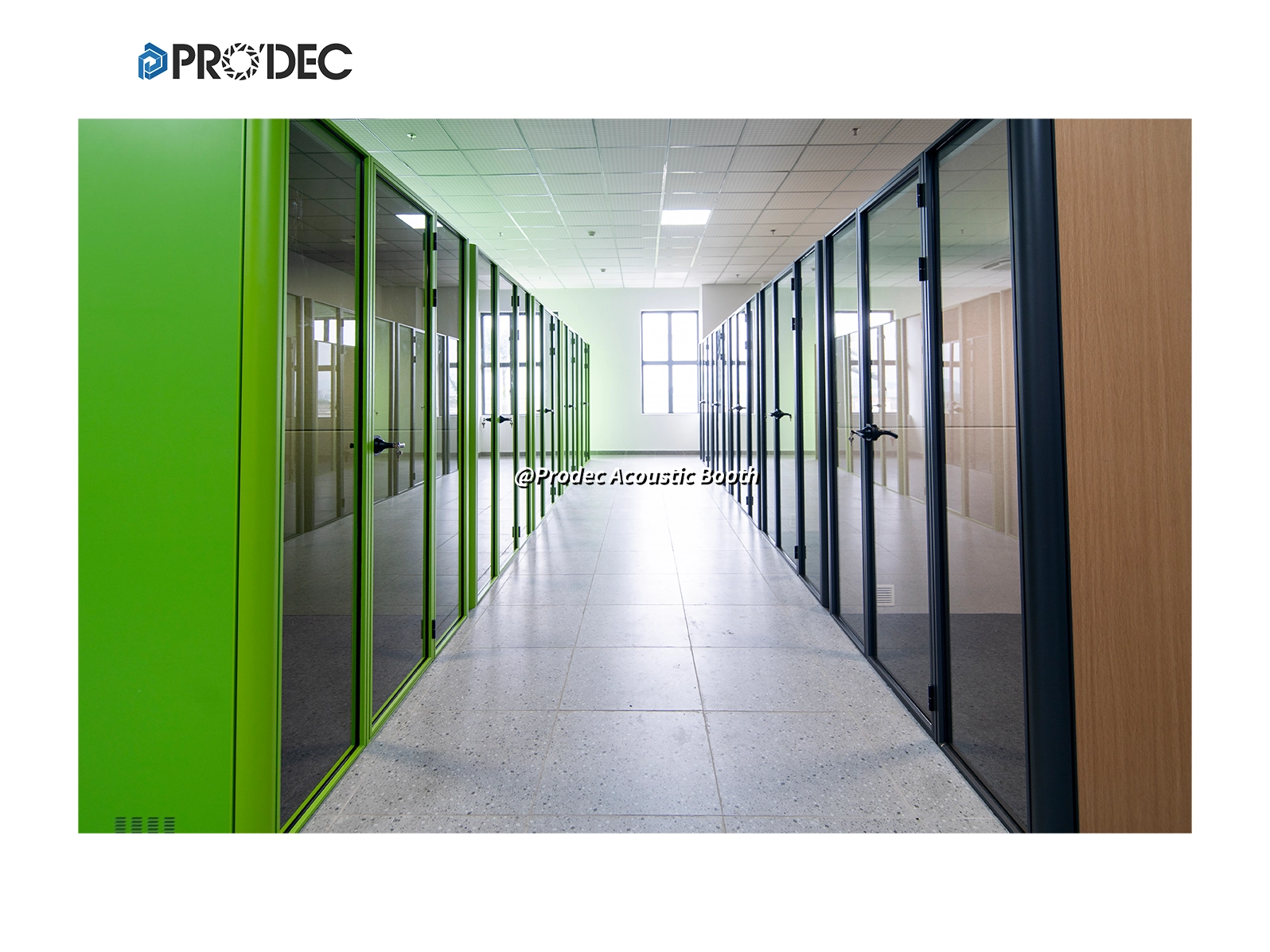
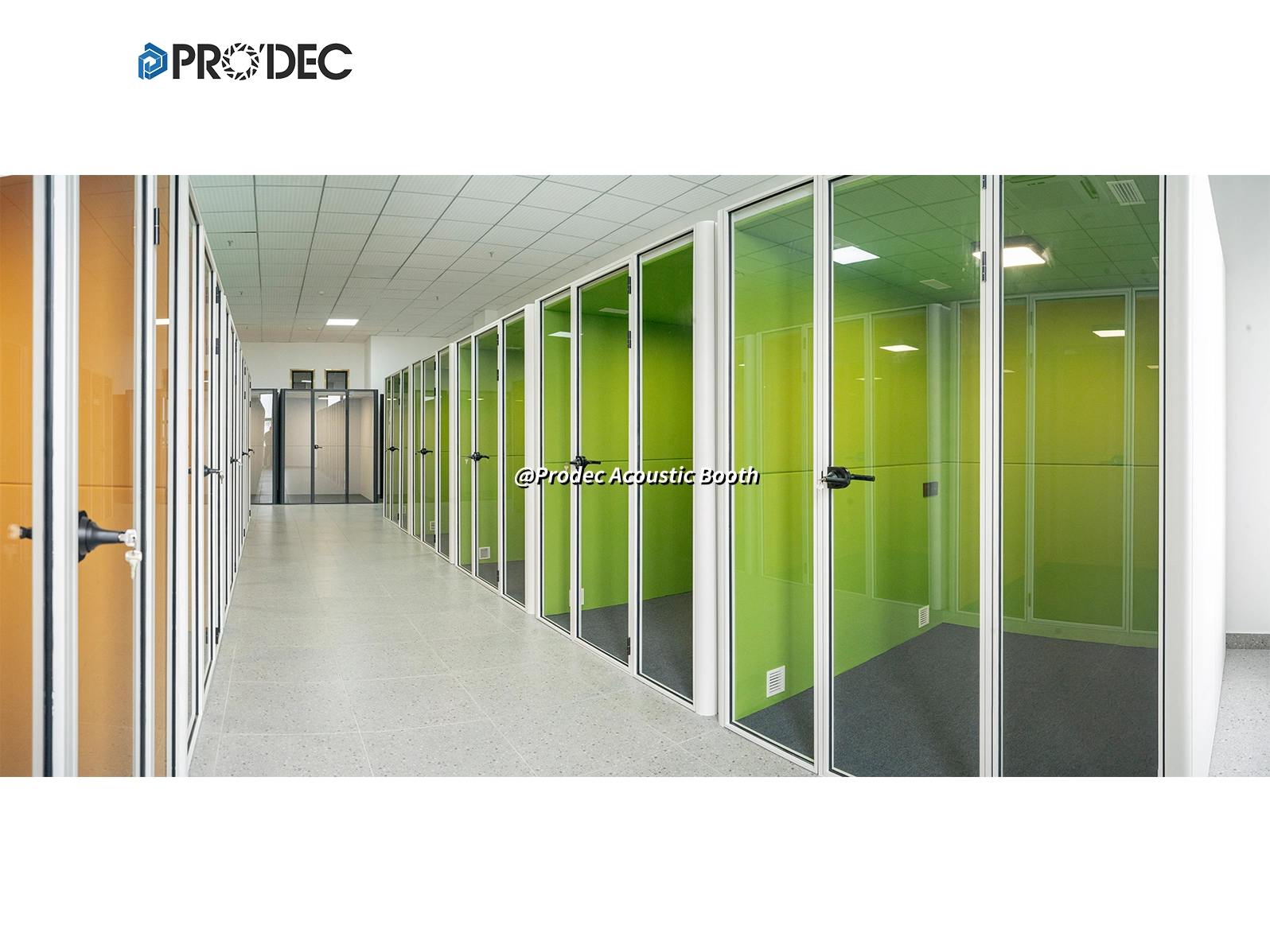
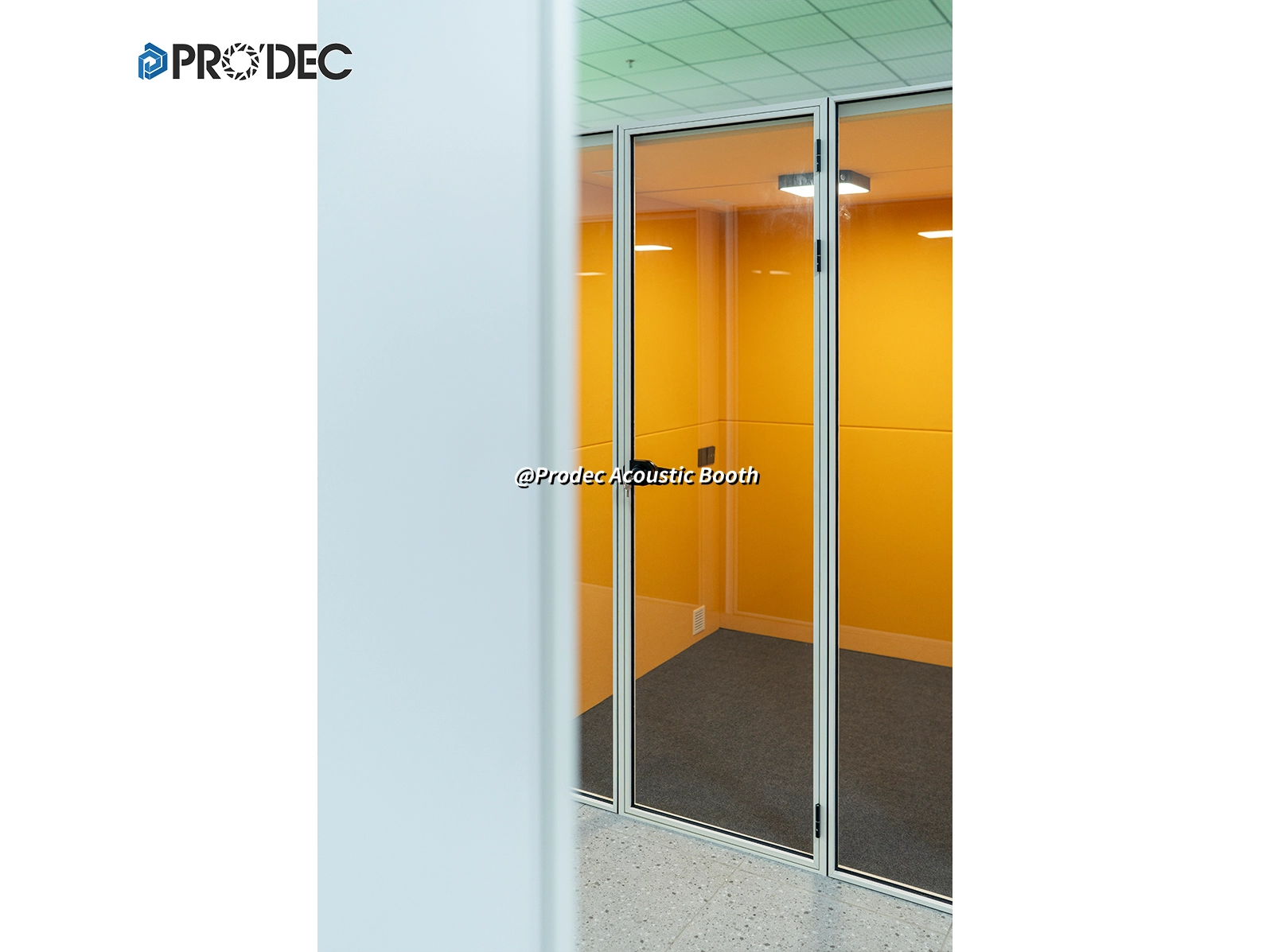
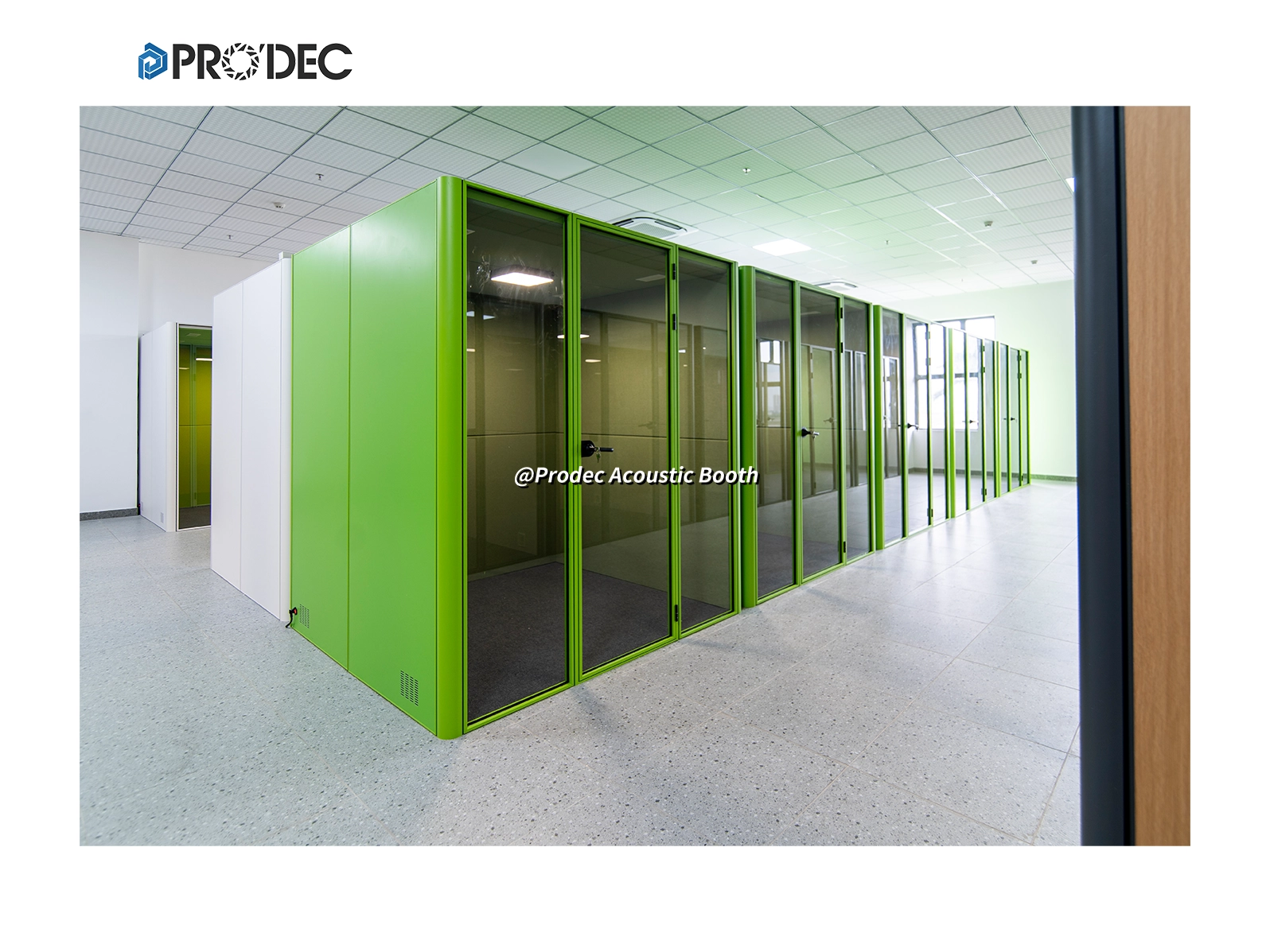
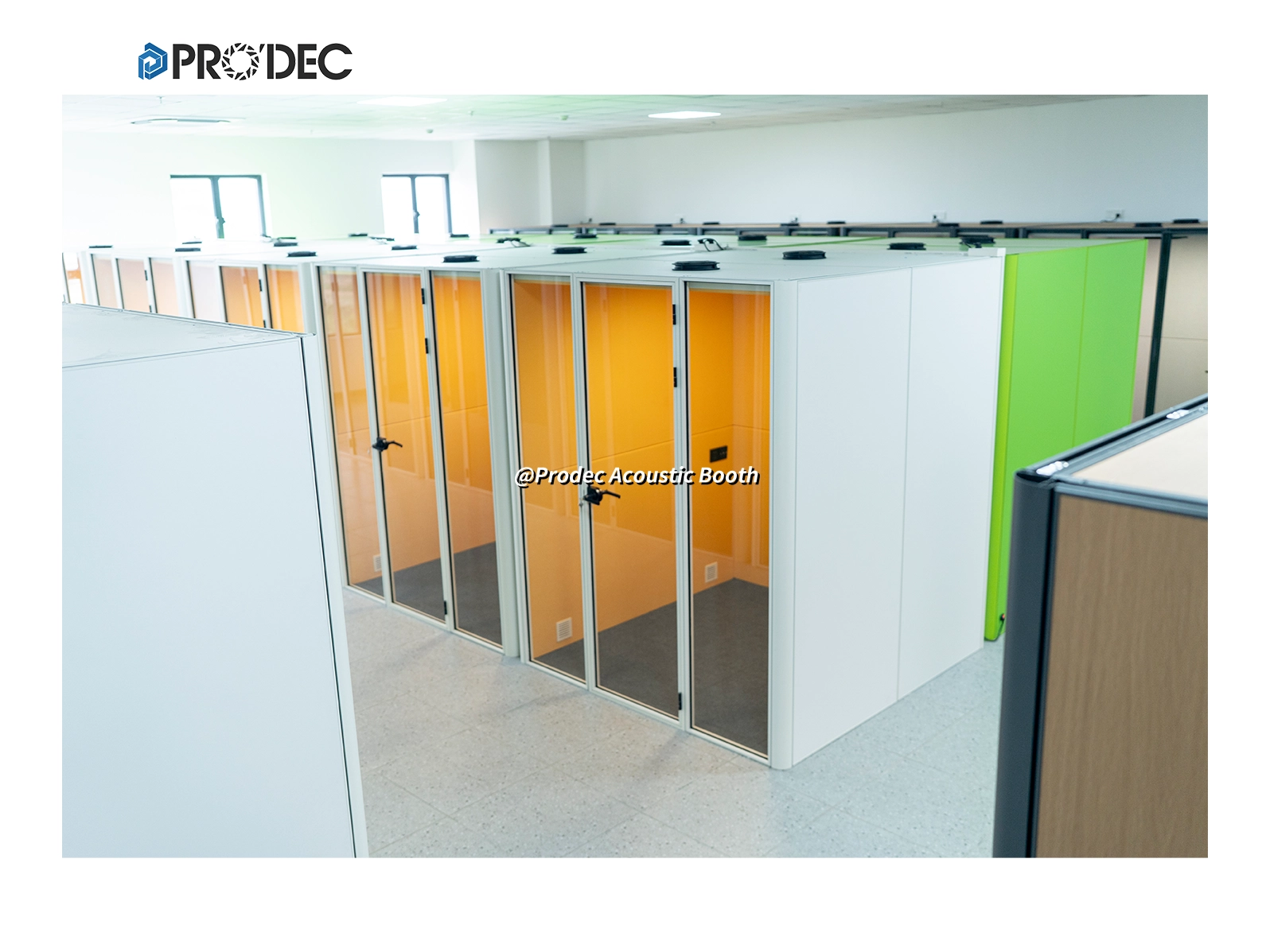
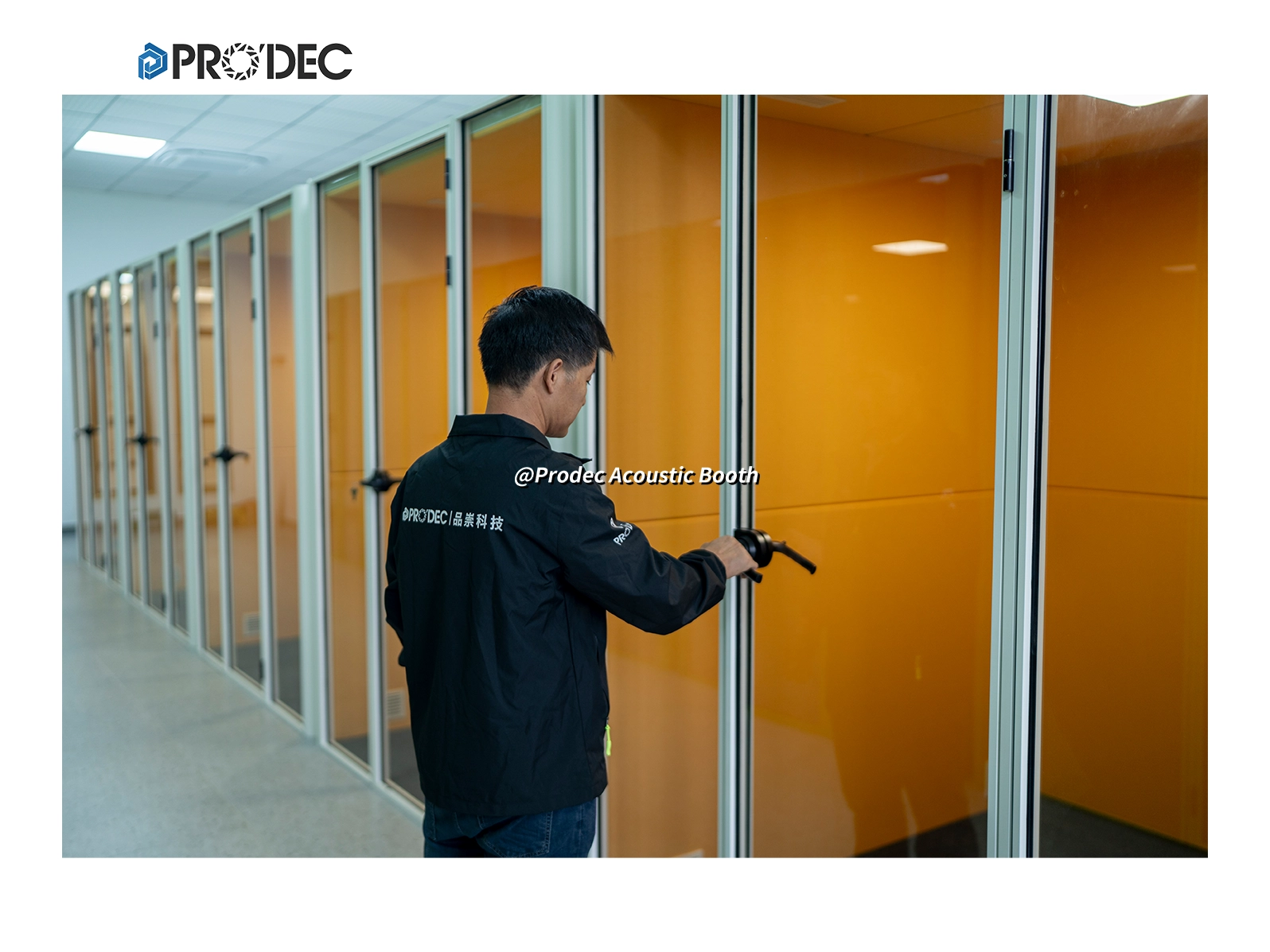
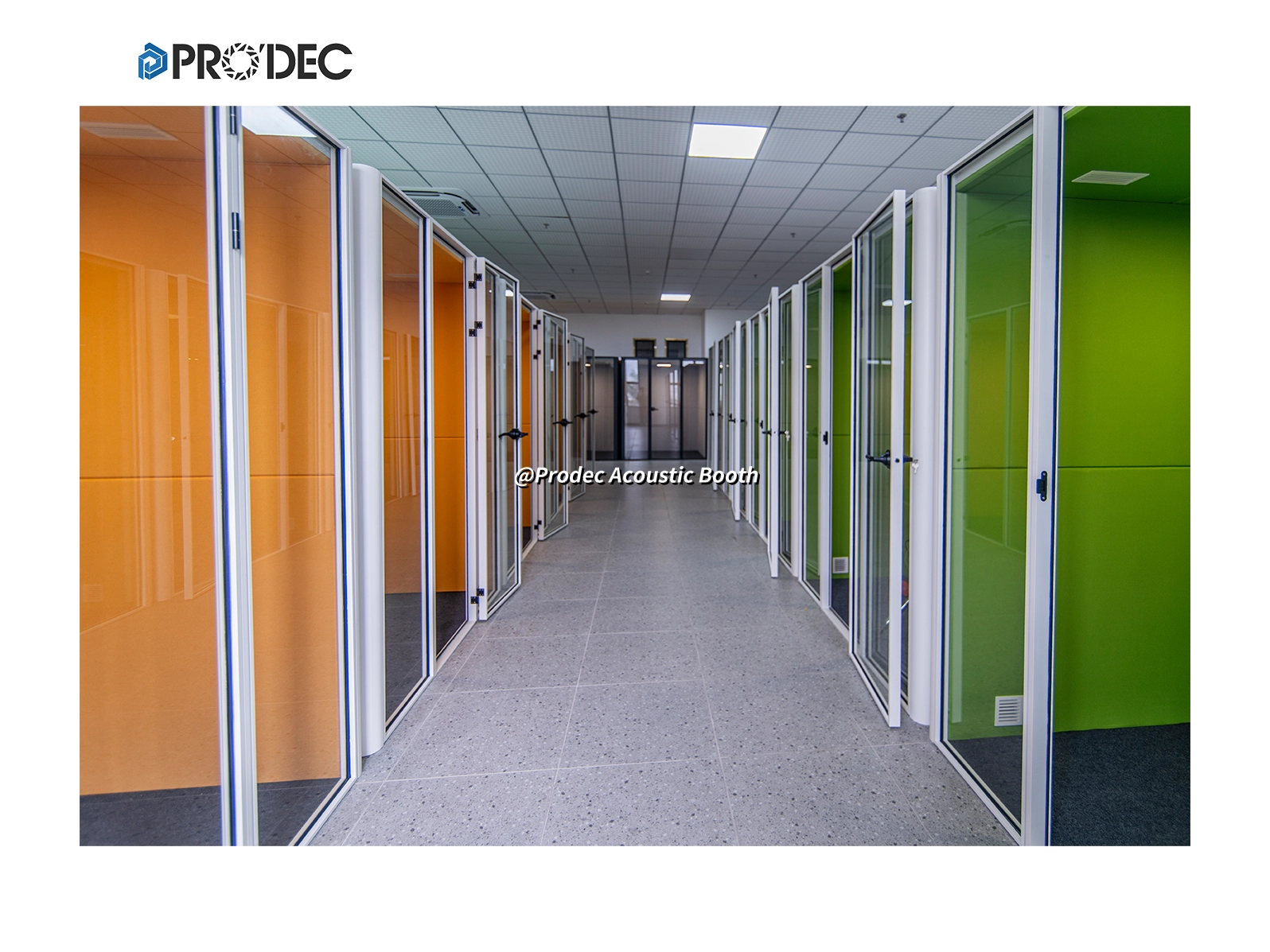
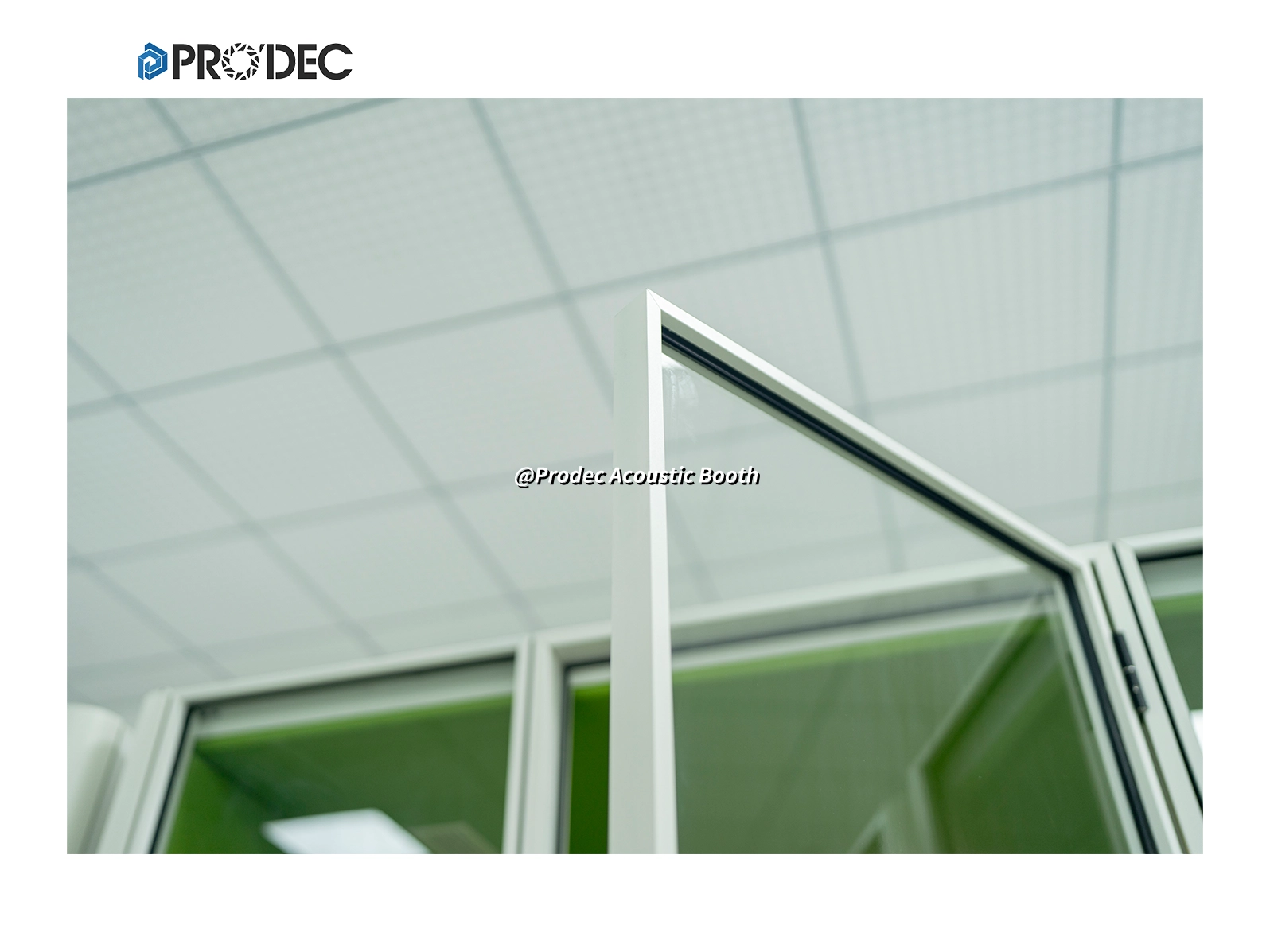
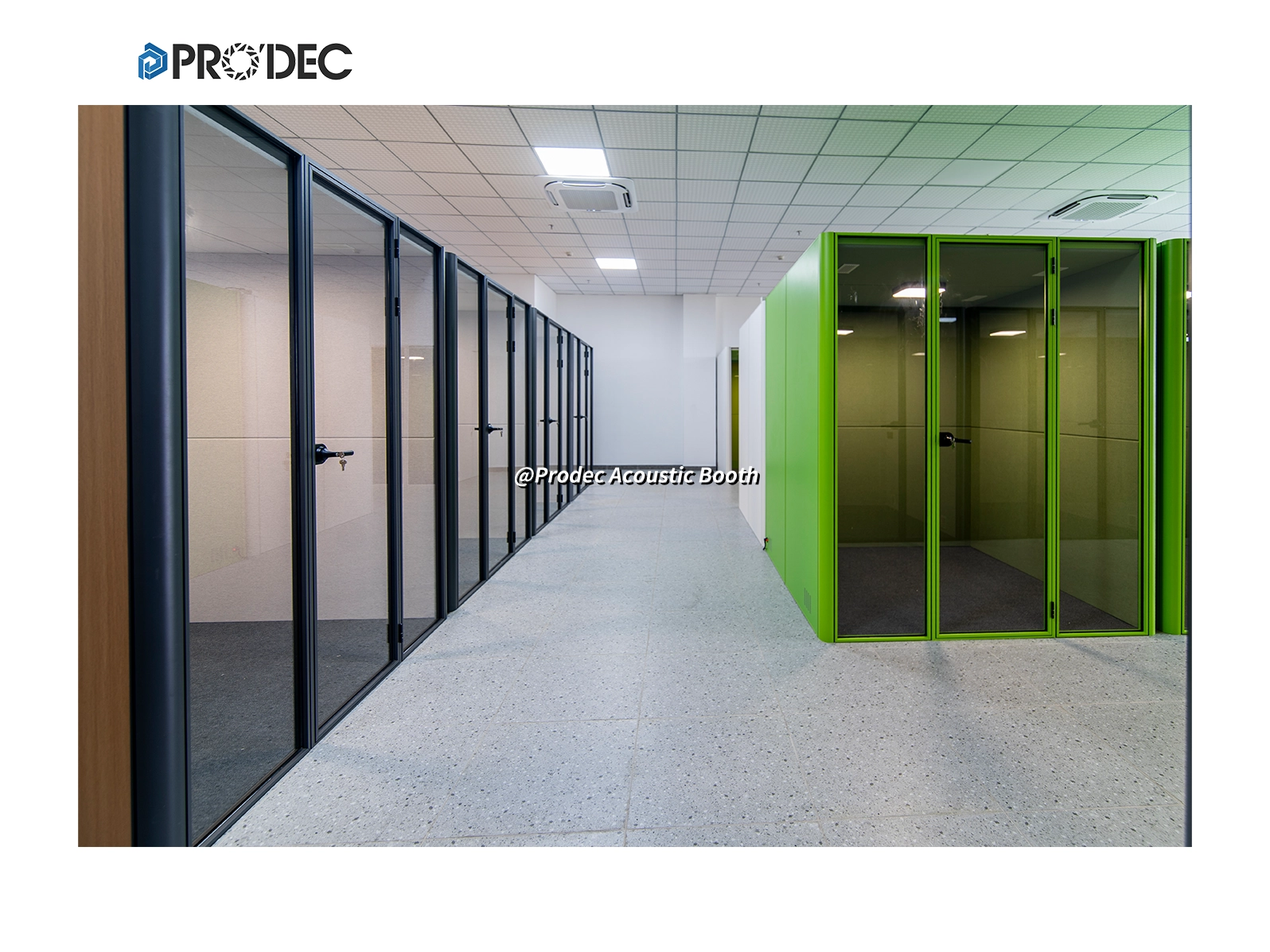
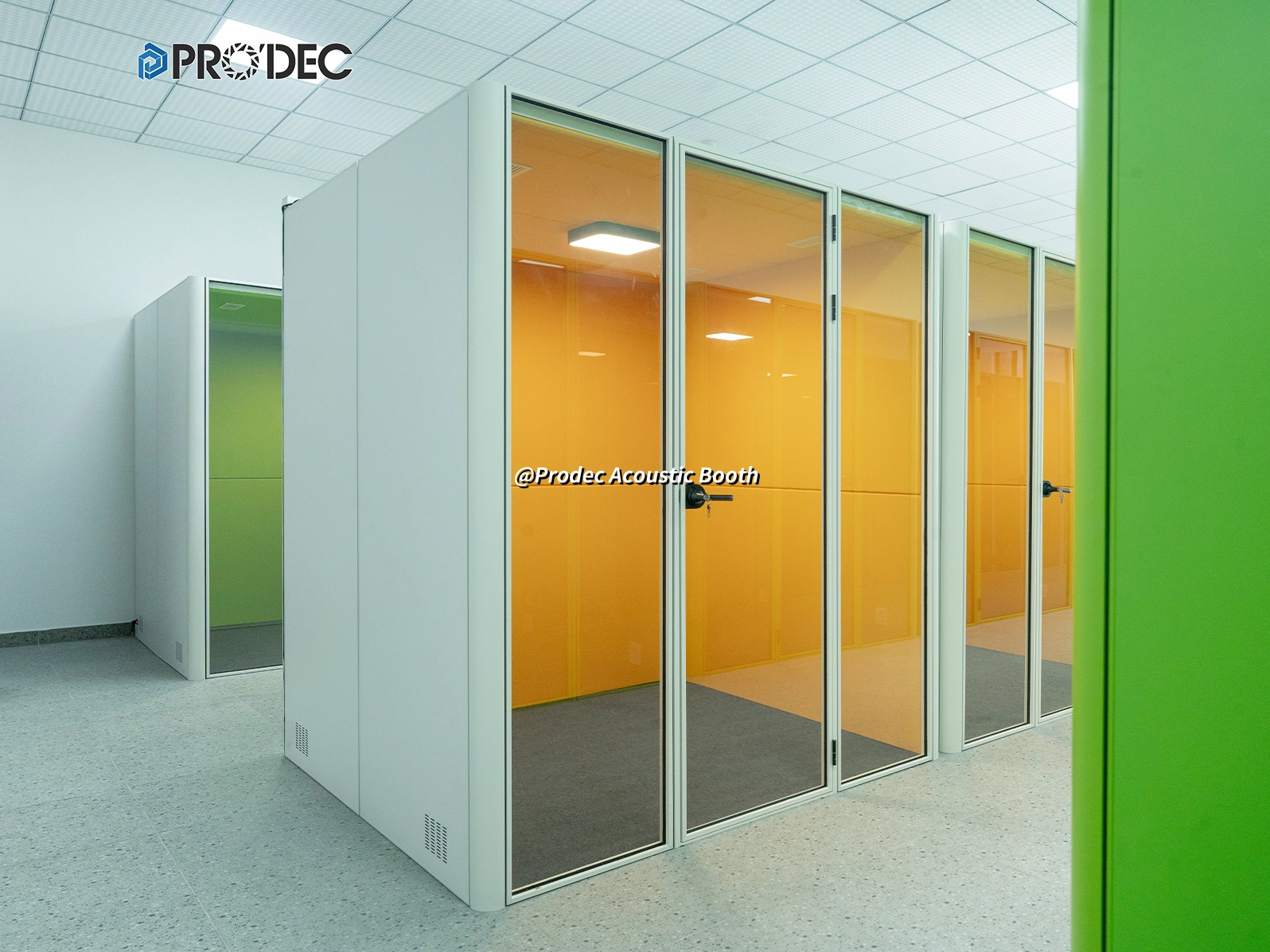
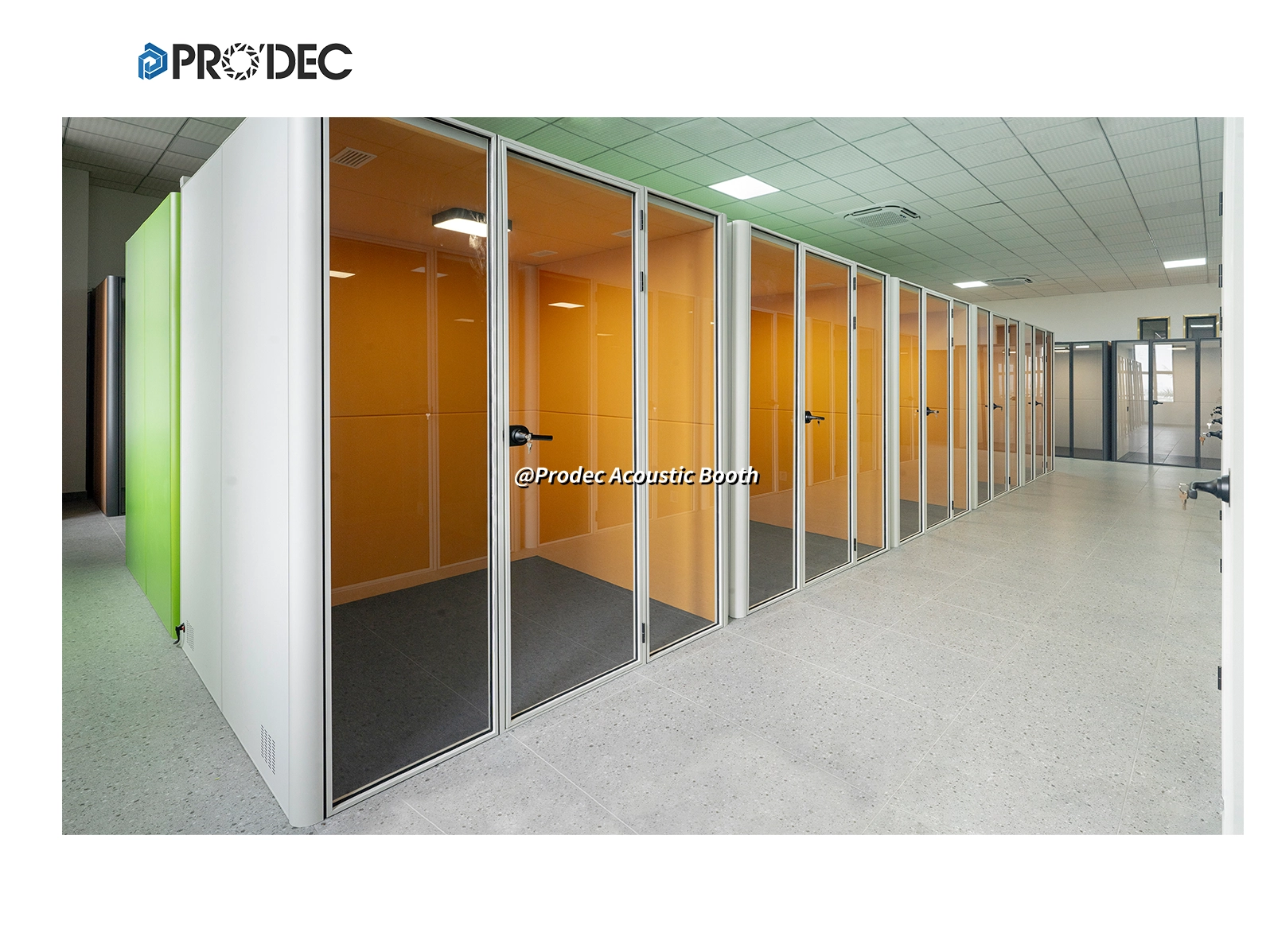
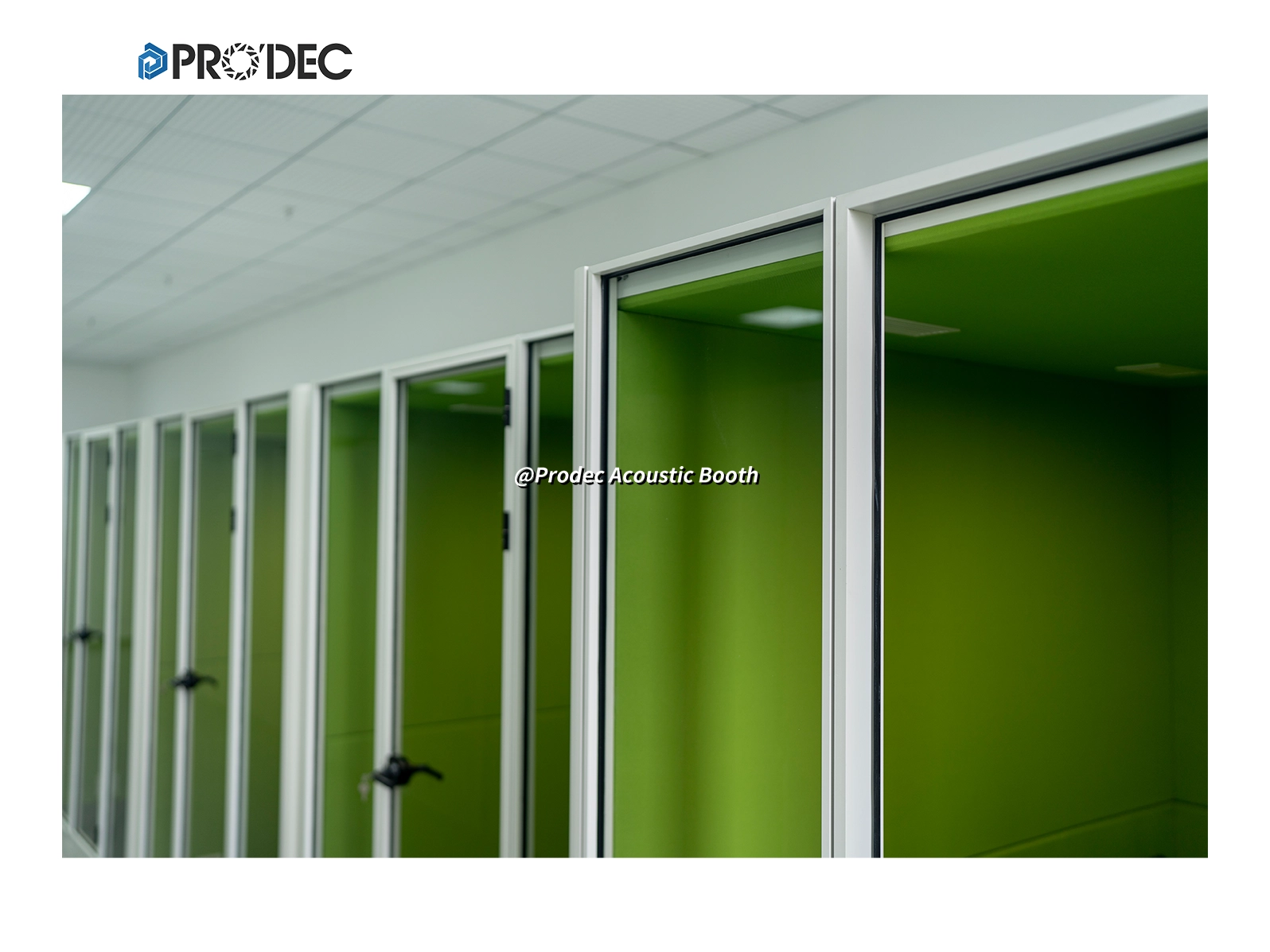
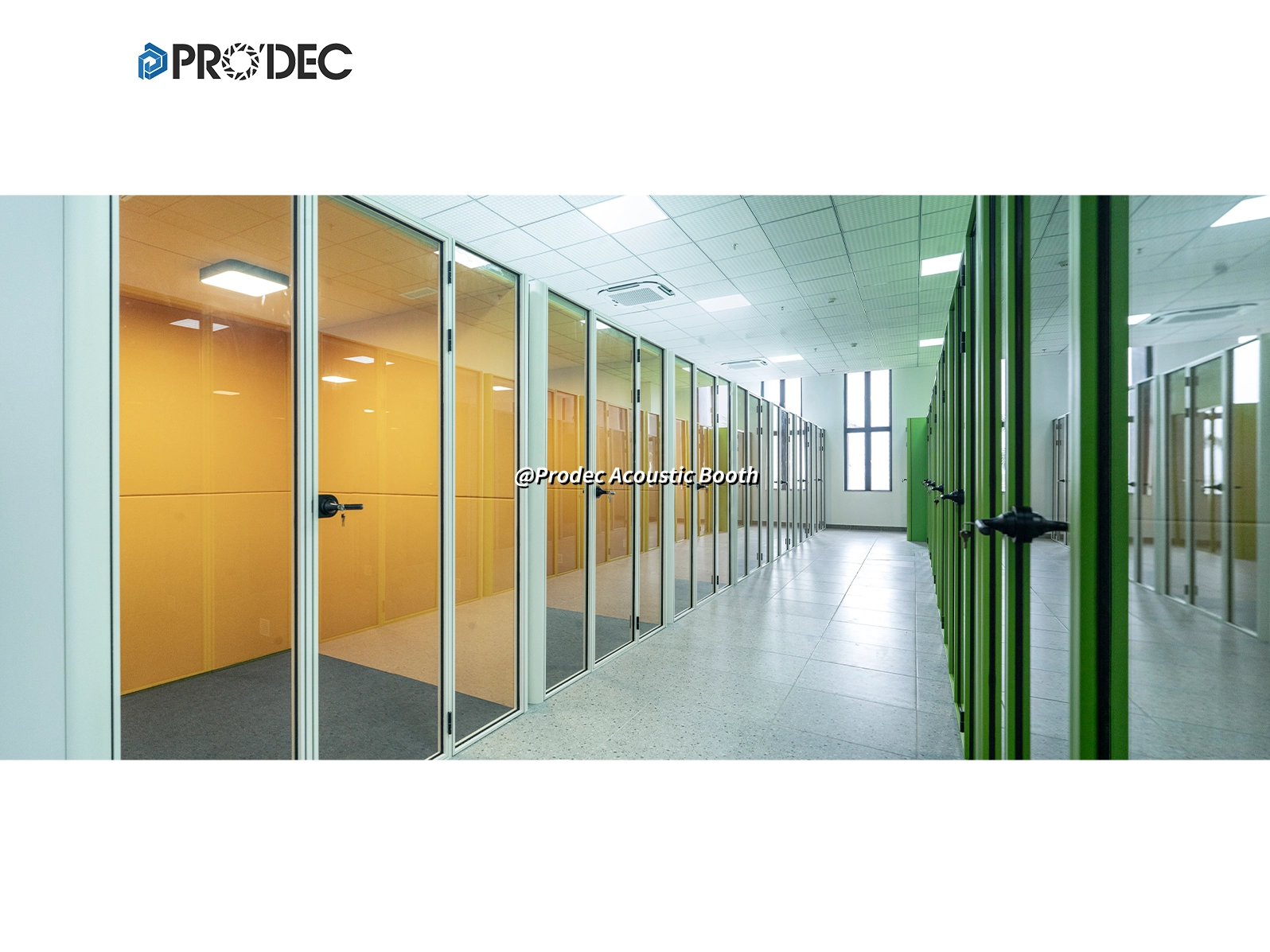
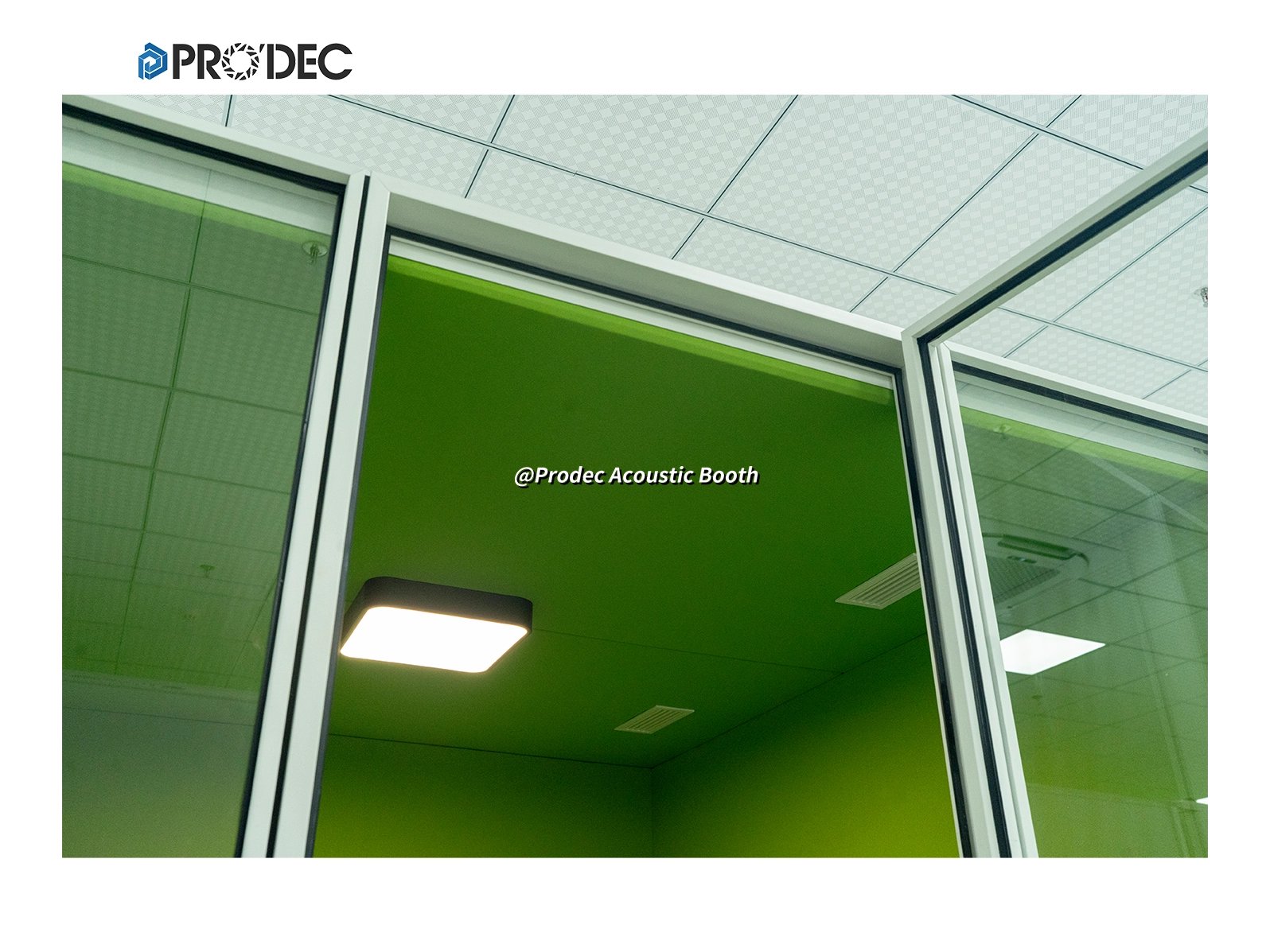
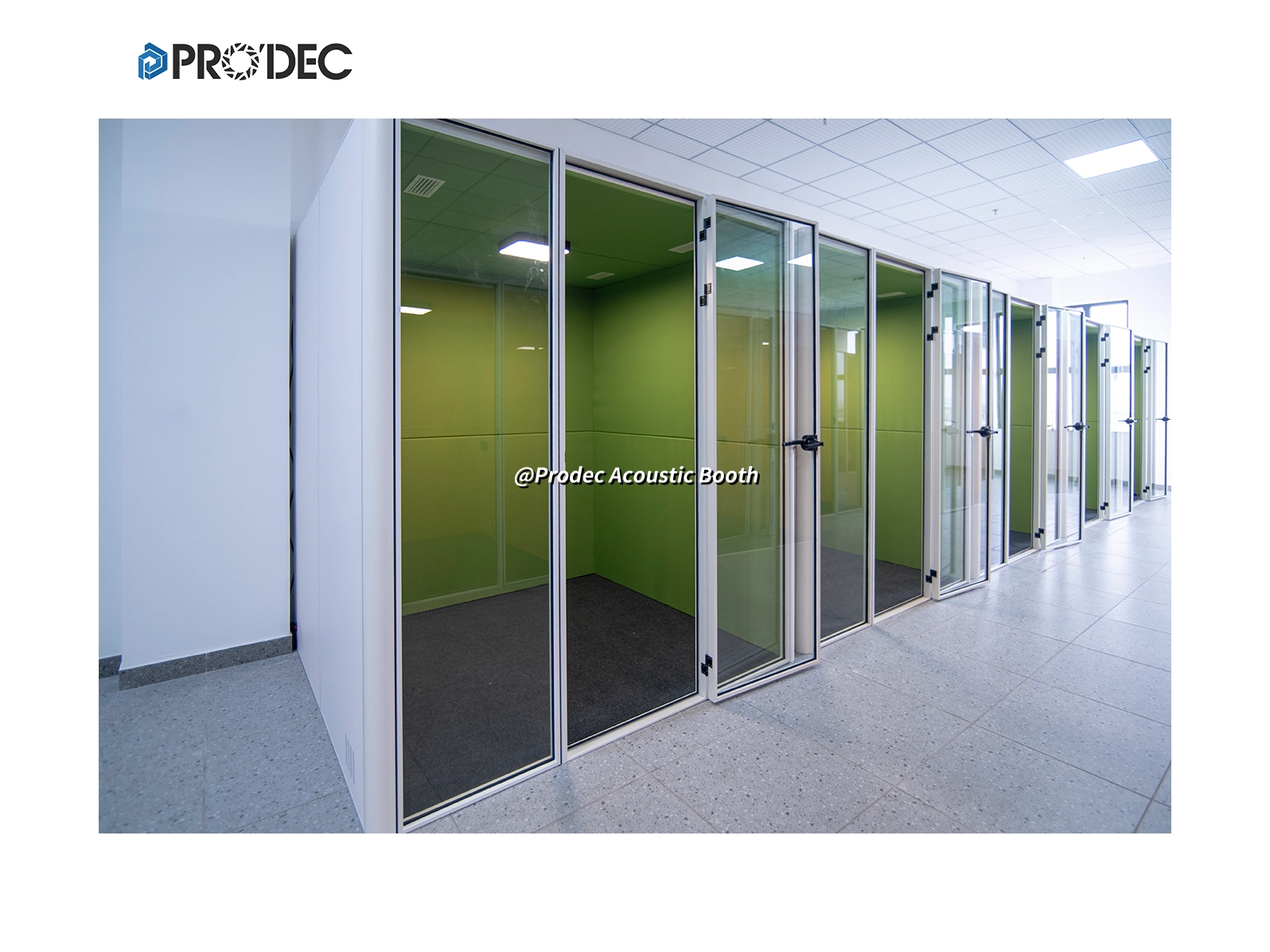
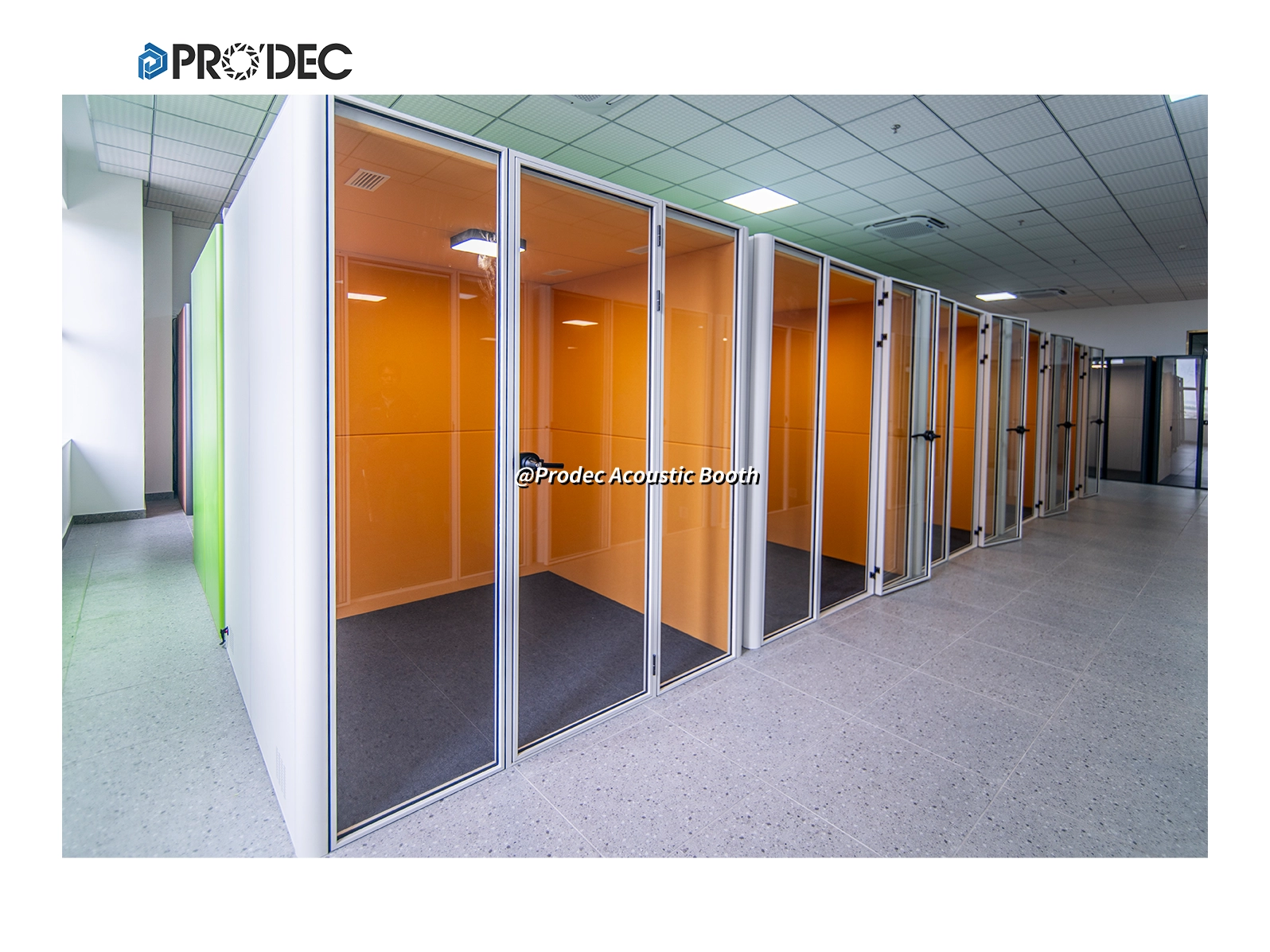
How a Silence Piano Booth Improved Music Training Quality at Huali College
(A detailed case study using silence piano booth, musical instrument booth, soundproof booth)
Introduction: Why a Silence Piano Booth Is Essential for Modern Music Education
Music schools and university arts departments are facing increasing pressure to provide better acoustic learning environments. Traditional piano practice rooms often require reinforced walls, thick acoustic padding, and significant renovation budgets. Meanwhile, campuses grow more crowded, noise complaints rise, and energy efficiency becomes more important.
This is where the modern silence piano booth stands out. As a modular, mobile, and acoustically engineered solution, it creates a professional-grade practice environment without heavy construction.
Huali College recently introduced our silence piano booths to improve their teaching efficiency, reduce external noise, and create flexible practice spaces. This case study explains how it worked—and why more music institutions are making the same upgrade.
1. Challenges Faced by Huali College Before Installing the Silence Piano Booth
Before implementing the new booths, Huali College faced typical problems found in many music academies:
1. High noise interference between adjacent practice rooms
Students often complained that they could hear other instruments loudly through the walls.
2. Limited availability of suitable rooms for piano training
Traditional practice rooms were fully booked, causing schedule conflicts.
3. Rising complaints from non-music students
Nearby classrooms frequently experienced noise leakage, affecting normal lectures.
4. Difficulty maintaining consistent acoustic quality
Old rooms varied in construction and echo control.
5. Limited flexibility
Once a practice room was built, it could not be moved, expanded, or repurposed.
These challenges clearly signaled a need for a professional and flexible soundproof solution.
2. Why Huali College Selected Our Silence Piano Booth
After comparing multiple options, the college chose our soundproof booth system because it fit all their needs:
Top 5 Selection Criteria
Strong sound isolation (30–40 dB) that ensures quiet practice sessions
Modular design, allowing easy relocation and flexible placement
Professional acoustic treatment suitable for piano, violin, and vocal training
Energy-efficient ventilation system with low noise
Cost-effective alternative to traditional construction
In addition, our musical instrument booth offered better architectural consistency, high durability, and a clean modern aesthetic matching the campus design.
3. Acoustic Engineering Behind the Silence Piano Booth
The booth used in this project integrates four core technologies:
① Multi-layer Acoustic Panels
Layers include:
Anti-vibration structural board
High-density acoustic insulation
Sound-absorbing inner fabric
Reinforced anti-impact shell
② Laminated Sound-Insulation Glass
The front glass panel uses laminated acoustic glass, reducing mid-high frequencies typical of piano sound.
③ Interior Echo Management
Acoustically optimized surfaces ensure:
balanced reflection
clear tone
natural reverberation
stable sound monitoring environment
④ Silent Ventilation System
The system exchanges air every 3–5 minutes, maintaining comfort even during long sessions.
This engineering ensures students get a stable, quiet, high-quality practice environment comparable to dedicated studio rooms.
4. Huali College Installation Layout & Execution Plan
Step-by-Step Implementation
Campus noise map assessment
Piano practice traffic analysis
Choosing optimal booth locations
Confirming electrical and ventilation access
Selecting booth size and internal features
Color matching with campus aesthetic
Pre-assembly testing
On-site installation (1–3 hours per booth)
Sound level testing (before/after)
Training instructors and students for usage
Within one day, the booths were fully operational.
5. Before & After Comparison (10 Key Differences)
| Feature | Before (Traditional Rooms) | After (Silence Piano Booth) |
|---|---|---|
| Sound Isolation | Inconsistent | 30–40 dB reduction |
| Construction Time | Weeks | 1–3 hours |
| Mobility | None | Fully movable |
| Acoustic Quality | Varies | Standardized professional acoustics |
| Echo Control | Hard to manage | Built-in optimization |
| Scheduling | Overloaded | Increased availability |
| Noise Complaints | Frequent | Significantly reduced |
| Expansion | Very difficult | Easy to add more booths |
| Maintenance | High | Low |
| Privacy | Limited | Complete privacy |
The upgrades created a predictable, professional learning environment across all booths.
6. Feedback From Instructors & Students at Huali College
⭐ “The booth gives students a stable and quiet place to practice.”
— Piano Department Lecturer
⭐ “The sound is clear and balanced. You can hear small details better.”
— Senior Piano Major Student
⭐ “Finally no more noise complaints from other classrooms.”
— Academic Affairs Office
The booth improved both learning outcomes and campus harmony.
7. Why Silence Piano Booths Are Better Than Traditional Practice Rooms
Top Advantages
No heavy construction
Lower cost
Can be relocated at any time
Better acoustic optimization
More consistent quality control
Modern design aesthetic
Airflow and lighting are built in
Modular and scalable
Reduces campus energy consumption
Can be used for piano, violin, vocal, guitar and rehearsal
This flexibility is especially valuable for universities with evolving enrollment numbers.
8. Expanding Use Cases Beyond Piano
The booth at Huali College is now also used for:
Vocal practice
Guitar and ukulele
Keyboard rehearsals
Recording tasks
Instructor–student one-on-one training
This makes it a multi-purpose acoustic classroom.
9. ROI Analysis for Music Schools & Universities
Direct Benefits
Reduced noise costs
Less conflict between departments
No construction downtime
Long service life
Standardized training environment
Indirect Benefits
Stronger recruitment appeal
Better learning outcomes
Higher student satisfaction
Improved campus image
A silence piano booth typically pays for itself within 6–12 months.
10. Case Study Conclusion: Why Huali College’s Model Works
The success of this installation shows that a silence piano booth is not just a product—it’s a modern educational infrastructure upgrade.
It helps institutions:
Improve acoustic quality
Increase scheduling efficiency
Reduce noise interference
Enhance student learning results
Lower construction costs
For universities, music academies, and training centers, it delivers a future-proof solution aligned with modern teaching needs.
FAQ About Silence Piano Booths
1. How much sound does the booth block?
Usually 30–40 dB, enough to make external conversations and noise unnoticeable.
2. Can it handle loud piano volumes?
Yes. The interior absorbs reflections to maintain clarity and reduce harsh tones.
3. Is ventilation comfortable for long practice sessions?
The airflow cycles every few minutes.
4. Can it be moved later?
Yes, it can be disassembled and moved without damage.
5. Is it suitable for other instruments?
Absolutely—vocal, strings, keyboards, winds, and recording practice.






